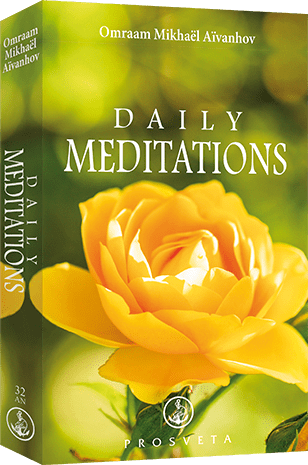Read the thought for the day
of Omraam Mikhaël Aïvanhov
Every year for more than 20 years, Prosveta Editions publishes a book with a thought for the day to read, meditate, apply, share.
Subscribe to this thought for free and receive it daily in your inbox.
Beautiful discovery of speech and teaching of Omraam Mikhaël Aïvanhov
I subscribe to the thought for the day
Daily Meditation: Wednesday, October 9, 2013
Disciples - whom a Master who has left the earth comes to inhabit
If a Master considers that he has not yet completed his work when the time comes for him to leave the earth, he can continue it through certain of his disciples who began the work with him. Spiritual entities do not need to incarnate in a body in order to act, and neither does he; he slips in and works his way into their soul. Physically the Master is no longer there, yet he is still present, carrying on his work. Why would he take on a physical body once more? Having to spend nine months in a mother’s womb, be born, grow up and train until at last he is in possession of all his psychic and spiritual powers – it all takes so long! So, a Master often chooses to inhabit people who wish to pursue his task and are able to do so. And he does not come alone, for he himself is linked to other Masters, as well as angels and archangels. That is why, thanks to their Master, disciples feel enriched by the many presences bringing them light, supporting them and revealing to them the wonders of the spiritual world.
